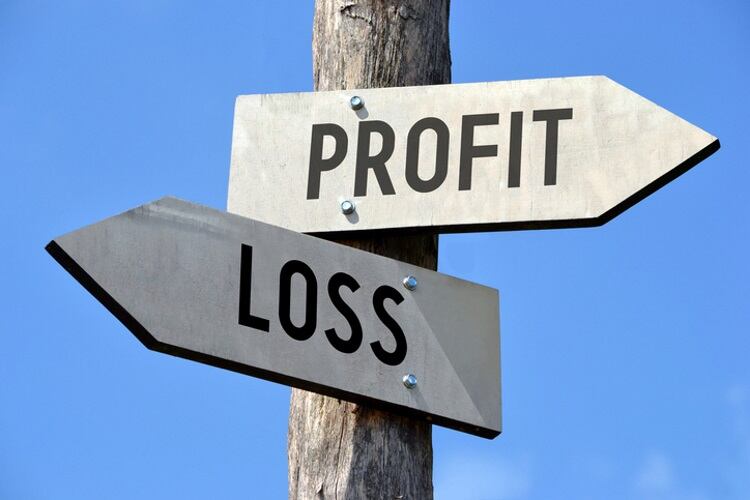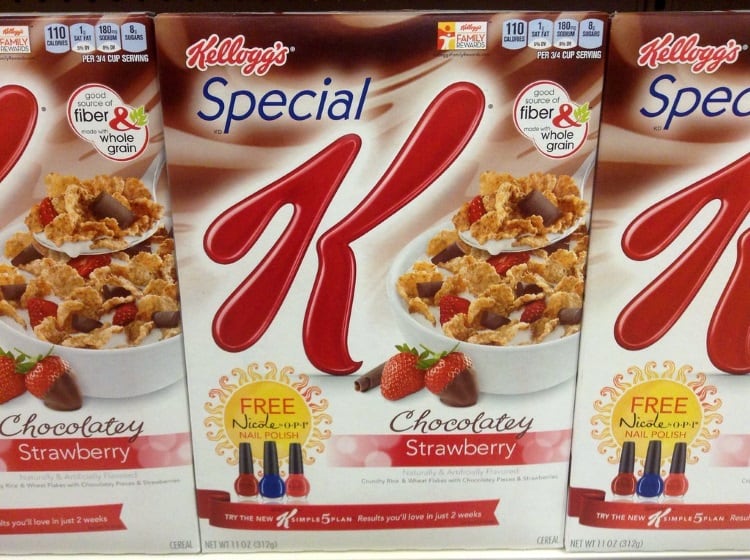The exact extent of the damage will depend on how quickly the virus is contained, the steps taken to contain it, and how much economic support governments are willing to deploy.
The UN trade agency UNCTAD has warned of a slowdown of global growth to under 2% this year – effectively wiping $1 trillion off the value of the world economy – and numerous producers have reported lost revenue, challenges in production and disrupted supply chains. However, several are now reporting a brighter outlook, boosted by consumers’ need to stock up the pantry as governments enforce social distancing efforts in order to mitigate the spread of the virus.
In its third quarter earnings report, General Mills is expecting elevated demand as consumers shift their budget spending toward eat-at-home products that have a long shelf-life, like cereals, snack bars, baking flour and soup.

Kellogg Company is also experiencing the highest stock surge in over a year.
Dirk van Ham, secretary general of Fedima, the European trade association representing the bakery, patisserie and confectionery ingredients’ manufacturers, told BakeryandSnacks that its members are taking the impact in their stride, adding, "Though logistics and the supply chain could potentially face issues, with border blocks and increased controls likely to lead to slight delays, Fedima and its members have reacted swiftly, taking into account all possible impacts of this outbreak, so as to minimise any lasting effects on the smooth running of business.”
Consumer behaviour
Mintel Trends regional director of Asia-Pacific, Matthew Crabbe, said the COVID-19 outbreak will not only have implications on economies, but also on how consumers behave, as millions retreat into self-quarantine.
Being housebound will leave an indelible (if subtle) shift in how consumers behave in the future, he maintained, as the pace of life slows and new routines emerge.
Despite the current erratic behaviour to hoard as much as possible of long shelf-life foodstuffs, consumers will eventually come around to planning organised – albeit rationed – shopping expeditions. The older generation, previously reticent to shopping online, will find that easier-to-use apps and social media make it a breeze.
It could even have an effect on food waste, he said, noting the resurgence of home cooking and consideration of shopping strategies could lead to people better appreciating using what they have … a reverse of the throw-away culture that has predominated.
Heading for a recession?

Mike Hughes, director of Insights at FMCG Gurus, has taken a more sober stance, noting COVID-19 could ultimately have a significant impact on consumer spending as they look to curb it as much as possible on products that are deemed non-essential.
“This is something that will be especially damaging for smaller and independent brands that are unable to deal with the impact of disruption to cash flow, especially if retailers do not pay them immediately,” he told BakeryandSnacks, noting it could ultimately lead to a recession.
“While much attention was given in the last decade to consumers seeking out moments of small indulgences in times of a crisis, it must be remembered that this is a pandemic as well as an economic issue, meaning the impact is occurring at a much faster rate and has a wider range of implications.
“From an industry perspective, if rates of illness continue to intensify the way that they are, this will also impact on the ability to produce and deliver products, something that could lead to a shortage when it comes to staple items such as bread.”
He was quick to add this was a worst-case scenario and Wuhan, the epicentre of the spread, is now getting back to normal life.
US food supply remains plentiful and safe

Bread shortages in America are not troubling Robb MacKie, president of the American Bakers Association, though, who noted the US bakery sector remains vibrant, with more than a million workers along the supply chain committed to still producing great products.
“Conversations with ABA members and our colleagues in the food and beverage association community make one thing abundantly clear: America’s food supply remains plentiful and safe,” he said.
“Even with the declaration of a National Emergency and similar declarations by various states, food production and distribution are part of the nation’s critical infrastructure, which puts guaranteed safeguards in place so our industry can continue feeding our country’s citizens.
“Additionally, the unity of the collective food and beverage industry in collaboration with federal and state leaders ensures our critical food infrastructure can continue to serve our communities. The collaborative work of our group of 50+ associations to serve the country during this time of need is impressive.”
Tough times ahead

Across the pond in the UK, another player in the bakery sector is maintaining a cool head.
“Primarily for the food industry, the priority has to be on people’s health and wellbeing while trying to maintain a supply of basic food stuffs,” Chris Hook, business director of Warburtons Gluten Free, told BakeryandSnacks.
“We are experiencing exceptional demand for bread, so our focus is on producing key lines and ensuring we maintain a high level of service to our retail customers.”
He noted the difficulty came in not knowing how long the current scenario would last and what demands this will have on the industry down the line.
“We are continually revisiting our planning and prioritising key products,” added Hook.
“As numbers of people suffering coronavirus increases, we will have to manage our resources carefully and flexing production crews as efficiently as we can without jeopardising any individuals wellbeing but trying to ensure we continue to supply bread.
“We continue to plan and adapt as the situation changes – this is an incredibly tough time but we continue to make fresh – normal and gluten-free – bread every day.”
The death of High Street?
Sadly, there are rough seas ahead for some.
According to co-owner and founder of Two Magpies Bakery, Steve Magnall, the family-owned bakery group is planning for the worst.
“Contingency planning is around potentially closing our cafes and only doing take out, while also reducing our range and increasing bread production, which will be a staple for everyone in the coming weeks,” said Magnall.
“Our concerns are for our staff in this uncertain time. We will run out of cash if customers do not come into the cafes and this will impact on employment. The government has to intervene and support the staff and business so we can pay people’s wages, suspend rent and mortgage payments and protect the future of all these people and businesses. The High Street will be dead if not and will never recover.”
Stop, reconsider and refresh

On a lighter note, Sebastian Emig, director general of the European Snacks Association – which only represents the salty snacks sector – believes these unprecedented times gives us time to step back and start afresh.
“We are all affected by the current virus outbreak, and it is a time of clear and decisive action on the one side to curb the further spread of the virus,” he told BakeryandSnacks.
“On the other side, it offers society, economy and politics an opportunity to re-consider and re-think strategies, approaches and way of life that we were used to over the past decades.
“We are optimistic that we will come through this crisis and will be ready to offer our consumers the right snacks at the right time within an overall balanced and healthy diet.”
Threats and benefits

Finally, Adrian Ling, MD of plant-based food producer Plamil Foods – and viewed by many as the Vegan Willi Wonka – warns brands to tread carefully going forward.
“I believe that long-term changes will occur on a larger scale than can currently be imagined,” he said.
“From possible geographically shorter supply chains for manufacturers and retailers, to the effects of more customers transferring to internet shopping: there will be threats and benefits to all brands.
“While the welcome ‘healthier snack’ trend may continue, my current thoughts are that any new product promoted with an ‘immune’ type hype could be seen by the public as a cynical marketing tool.”
However, he noted the importance the bakery and snacks industries had at a time like this.
“I am delighted to be a part of the bakery and snack industries, which play a role now and will do in post-COVID-19 society to promote and heal society’s fragmentation … bringing moments of joy and sharing to all,” said Ling.





